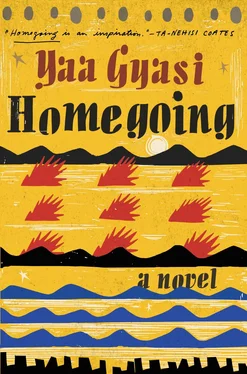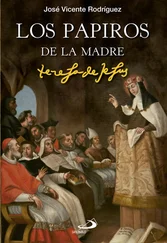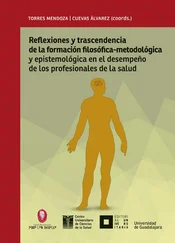The convicts working the mines were almost all like him. Black, once slave, once free, now slave again. Timothy, a man on H’s chain link, had been arrested outside the house he had built after the war. A dog had been howling in a nearby field the whole night long, and Timothy had stepped out to tell the dog to hush up. The next morning the police had arrested him for causing a disturbance. There was also Solomon, a convict who had been arrested for stealing a nickel. His sentence was twenty years.
Occasionally one of the wardens would bring in a white third-class man. The new prisoner would be chained to a black man, and for the first few minutes all that white prisoner would do was complain. He’d say that he was better than the niggers. He’d beg his white brothers, the wardens, to have mercy on him, spare him from the shame of it all. He’d curse and cry and carry on. And then they would have to go down into the mine, and that white convict would soon learn that if he wanted to live, he would have to put his faith in a black man.
H had once been partnered with a white third-class man named Thomas whose arms had started shaking so badly, he couldn’t lift the shovel. It was Thomas’s first week, but he’d already heard that if you didn’t make your quota, you and your buddy would be whipped, sometimes to death. H had watched Thomas’s trembling arms lift the few pounds of coal before giving way, and then Thomas had collapsed to the ground crying, stammering that he didn’t want to die down there with nothing but niggers to bear witness.
Wordlessly, H had taken up Thomas’s shovel. With his own shovel in one hand and Thomas’s shovel in another, H had filled both men’s quotas, the pit boss watching all the while.
“Ain’t no man ever shoveled double-handed before,” the boss had said after it was over, respect lacing his voice, and H had simply nodded. The pit boss had then kicked Thomas on the ground where he still sat, sniveling. “That nigger just saved your life,” he said. Thomas looked up at H, but H said nothing.
That night, in a bunk with two men chained on either side of him, a bunk two feet above him, H realized that he couldn’t move his arms.
“What’s wrong?” Joecy asked, noticing H’s awkward stillness.
“Can’t feel my arms,” H whispered, scared.
Joecy nodded.
“I don’t want to die, Joecy. I don’t want to die. I don’t want to die. I don’t want to die.” H could not stop himself from repeating the words, and soon he realized that he was crying too, and he couldn’t stop that either. The coal dust under his eyes started to run down his face, and silently H continued on. “I don’t want to die. I don’t want to die.”
“Hush, now,” Joecy said, hugging H to his body as best he could with the chains clanking and clacking as he moved. “Ain’t nobody dying tonight. Not tonight.” The two men looked around them to see if others had woken up from the noise. Everyone had heard about how H had saved the white third-class man, but they all knew, too, that this didn’t mean the pit boss would show mercy. The next day, H would have to do his share all over again.
The next day H was assigned the morning shift, partnered again with Thomas. He and the other morning shift men woke up while the moon was still bright in the sky, sliced thin and arched upward as though it were the crooked, white-toothed smile of the dark-skinned night. They went over to the mess hall to get a cup of coffee and a slab of meat. They got a sack lunch to take with them, and then they were lowered some two hundred feet down below the Earth’s surface until they hit the belly of the mine. From there, H and Thomas continued two miles in and further down, stopping finally in the room of the mine where they were to work that day. Usually, there were only two men to a room, but this one was particularly difficult, and the pit boss had paired H and Thomas with Joecy and his third-class man, a convict called Bull who had gotten his name not because of his frame, stocky and squat and commanding, but because Klansmen had burned his face one night — branded him, they said — so that everyone would know he was no good.
H had gone through all the motions of that morning, his arms achingly anchored to his sides as he refused the coffee and meat, couldn’t pick up the lunch sack to hold it, shinnied onto the elevator shaft. He had made it through the morning without drawing attention, trying to save up his energy for when he would have to start working.
Joecy was the cutter that day. He was five feet four inches tall, a small man, but he understood the ways of the rock like no one H had ever worked with did. Joecy was a first-class man they all respected, working off year seven of his eight-year sentence as fervently as he had year one. He would often say how he was going to get free and start working in the mines for pay, as some of the other black men had done. They couldn’t whip a free miner.
That day, the space between the rock was only about a foot high. H had seen men wiggle into spaces that small and shake and hyperventilate so badly they needed to leave. Once he’d seen a man get to the very middle and then stop, too scared to move forward or backward, too scared to breathe. They’d called Joecy over to try to fish him out, but by the time he got there the man had already died.
Joecy didn’t even blink at the small space. He shinnied his small body under the rock and lay down on his back and started to undercut the bottom of the seam. Once he had finished that, he drove a hole into the rock, listening to it, he liked to say, so that he could find the spot that wouldn’t crumble on top of him and kill him straightaway. Once the hole had been placed, Joecy put in the dynamite, lit it. The coal blew apart, and Thomas and Bull picked up their picks and started breaking the rock into manageable pieces so that they could all start to load the tramcar.
H tried to lift his shovel, but his arms would not budge. He tried again, focusing all his mind’s power and energy on his shoulder, his forearm, his wrist, his fingers. Nothing happened.
At first, Bull and Thomas just stared at him, but before he knew it, Joecy was shoveling his pile for him, and then Bull. And then, finally, after what seemed like hours, Thomas too was pulling weight, until everybody in the room of that mine had shoveled his own pile and H’s too.
“Thank you for your help the other day,” Thomas said once they had finished.
H’s arms were still aching at his sides. They felt like immovable stone, forced to his sides by some gravitational pull. H nodded at Thomas. He used to dream about killing white men the way they killed black men. He used to dream of ropes and whips, trees and mine shafts.
“Hey, how come they call you H?”
“Don’t know,” H said. He used to think of nothing else but escaping the mines. Sometimes he would study the underground city and wonder if there was somewhere, some way, he could break free, come out on another side.
“C’mon. Somebody must have named you.”
“My old master say H is what my mama used to call me. They asked her to name me somethin’ proper before she gave birth, but she refused. She killed herself. Master said they had to slice me out her belly ’fore she died.”
Thomas didn’t say anything then, just nodded his thank-you again. A month later, when Thomas died of tuberculosis, H couldn’t remember his name, only the face he made when H had picked up his shovel for him.
This was how it went in the mines. H didn’t know where Bull was now. So many were transferred at one point or another, contracted by one of the new companies or absorbed by another. It was easy to make friends but impossible to keep them. Last H had heard, Joecy had finished his sentence, and now all the convicts told stories about how their old friend had finally become one of those free miners they had all heard about but never dreamed of actually becoming.
Читать дальше

![Ally Carter - [Gallagher Girls 01] I'd Tell You I Love You But Then I'd Have to Kill You](/books/262179/ally-carter-gallagher-girls-01-i-d-tell-you-i-lo-thumb.webp)










